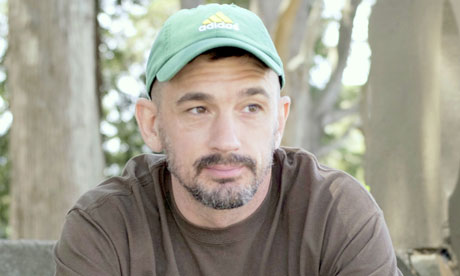
Chris Adrian is an American paediatrician, an oncologist and a theologian, and The Children's Hospital could only have been written by someone who is a paediatrician, an oncologist and a theologian, as well as a skilled literary practitioner. It is a profoundly disturbing novel, suffused with a weird and unsettling poetry, that asks deep questions about healing and harming.
Originally published in 2006, it has only just been released here, partly, one assumes, due to the success of the author's 2011 novel The Great Night and his short story collection A Better Angel. It is a less streamlined affair than the former, and boasts an almost manic profusion of ideas and images. In the hands of a less skilful writer, this capaciousness might be deemed a flaw; it is as if the author were uncertain that he might ever get published again and consequently was determined not to cut a single good notion. It is only because Adrian's work is so good that the reader does not feel overwhelmed.
Like many of his peers, Adrian combines elements from genre writing (The Children's Hospital is by turns science-fictional, fantasy and thriller) with insights from the higher reaches of literary-theoretical speculation. This ambitious intermixture is almost the defining feature of the new generation of American literary writers, who, taking their cue from Thomas Pynchon, systematically forgo the pastel social realism of the majority of the previous generation. But however far down that route Adrian travels, the work is both emotionally and morally tethered to reality as we know it. And what could be more affecting and ethically problematic than one's duties to a sick child?
The central figure of The Children's Hospital is a medical student, Jemma Claflin, who has already lost her parents, brother and significant other in variously traumatising ways. Because of these losses, her relationship with another intern, Rob Dickens, is being held slightly in check lest an admission of love bring down yet more tragedy.
Jemma's romantic anxieties turn out to be both germane and trivial. How will their relationship cope when, unexpectedly, the world ends? Torrential rain turns into a catastrophic flood, with only the hospital surviving the deluge. It now floats over a drowned world, having been designed to do so by its mysterious and troubled architect; moreover, the hospital's central computer has just declared that it is the Preserving Angel. It has created SF replicators to produce anything you might desire (these are never really described except as misty pockets).
Parts of the book are narrated by another angel, the Recording Angel, who has watched over Jemma all her life, and he reveals that another two angels will be coming to the hospital: the Accusing Angel, "to remind them why they suffer", and the Destroying Angel "to revoke the promise of survival and redemption, and to teach them the awful truth about furious sheltering grace". This structure provides narrative anchors to guide the reader through the horrors to come.
Other sections are narrated by Jemma's dead brother, who we learn died in a shocking, possibly Satanically inspired suicide (the exact details of which will never leave you). Jemma's brother is an obvious candidate to take on one of the angelic roles, but there are others: a boy who hid in the hospital even though he wasn't ill; an amnesiac man they call Ishmael who is an improbable survivor of the deluge, and others it would be a shame to give away here.
The hospital attempts to be both a new society in this new world and to function in its old ways; there are, after all, a great many extremely ill children on board. In fact, at one point, Jemma realises that they seem to have pairs of children with the same disease. It is an ark of symptoms and victims, and some of Adrian's descriptions – a girl with catheter bags hanging round her like a ball-gown, the child with too many fingers and not enough brain cells – are painful to read.
Then there is a miracle, the "Harrowing of the Hospital", whereby Jemma manages to unleash some power to heal them all. It is a testament to Adrian's talent that you realise that the best possible thing happening is probably not going to be a good thing at all. The best and the weakest of humanity, the most-feared and most-hoped for things, can all be found within these pages.
A reader with even a smattering of biblical knowledge will realise two things fairly quickly. In the Book of Genesis, God's covenant with Noah was that "never again will a flood destroy the earth". In the Book of Revelation, the vision of the new heaven and the new earth has the haunting phrase "and there was no more sea". Adrian's apocalypse is, terrifyingly, quite clearly not the Apocalypse. It implies a future, and how to deal with the future under the shadow of irreversibly, infinitely suffering children and adults, is the major theme.
The Children's Hospital is astoundingly good: much though I loved the smart, clever and equally moving The Great Night – which fused A Midsummer Night's Dream, Soylent Green and a terminally ill child – The Children's Hospital is possibly the more raggedly ambitious book, and proof that Adrian's ability is equal to his ambition.
• Stuart Kelly's The Book of Lost Books is published by Polygon.

